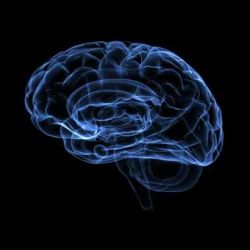Vision Lab Wins Grant to Study Brain Tumor Modeling and Detection
February 23, 2012

Khan Iftekharuddin, director of Old Dominion University's Computational Intelligence and Machine Vision Laboratory (Vision Lab), has received a grant of nearly $350,000 from the National Institutes of Health (NIH) to use machine vision technology in brain tumor modeling and detection.
The grant, from the National Cancer Institute of the NIH, is titled "Multiresolution-fractal Modeling for Brain Tumor Detection." The project will seek to create analytical models for identification of tumors in medical images, based on the hypothesis that the tumors have a fractal (self-similar) growth behavior.
Begun by Iftekharuddin at the University of Memphis, the research could provide important insight into the analysis of magnetic resonance images (MRI) for robust brain tumor detection.
Iftekharuddin's long-term research goal is to develop a fully functional automated CAD system to help radiologists diagnose brain tumors and hard-to-detect abnormalities, facilitate surgical pre-planning and monitor interventions. In this project, his team will work to develop a core component of such an automated system that does feature extraction, data fusion, and detection and classification of tumor and other abnormalities using MRI.
By characterizing these tumors as distinctly different from the image on the surrounding tissue, researchers can extract the desired features and segment from cysts, edema and other abnormalities.
With this latest grant, Vision Lab researchers plan to optimize the structure of the algorithms to improve robustness of tumor segmentation and obtain the minimum processing times, making these procedures appropriate for use in a target clinical environment. For research into brain tumor detection, this could be significant.
"There are many target clinical applications of our proposed computational techniques, including the detection, identification and differentiation in tissues, tumors and other abnormalities in the brain," Iftekharuddin said.
"An algorithm capable of reliably and accurately tracking changes in tumor volume would be of value as an adjunct marker in following up on patients with brain tumors. Such a method would also have direct application in preclinical surgery planning and therapy trials, possibly leading to novel treatment strategies and devices."
Vision Lab researchers focus on developing new algorithms and architectures for real-time applications in the areas of signal processing, image processing, computer vision, pattern recognition and biologically inspired object recognition. The lab's work has been recognized by grant-funding agencies, particularly in the homeland security field, for several years.
Among the new projects being undertaken by Vision Lab researchers are an algorithm to aid in long-distance facial recognition, 3-D face modeling using static image frames and an automatic image stabilizer that uses data points from moving images to create a more visible still image.

